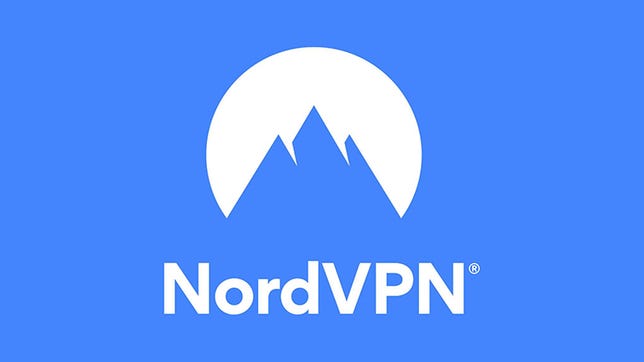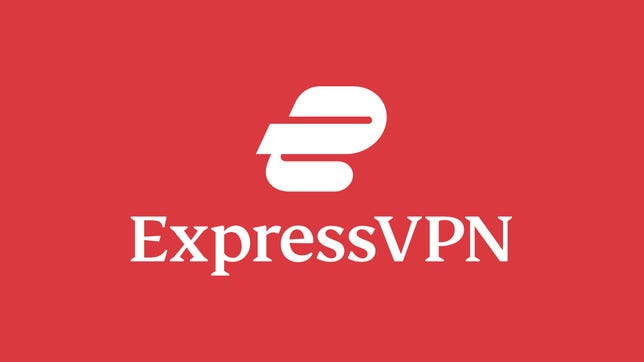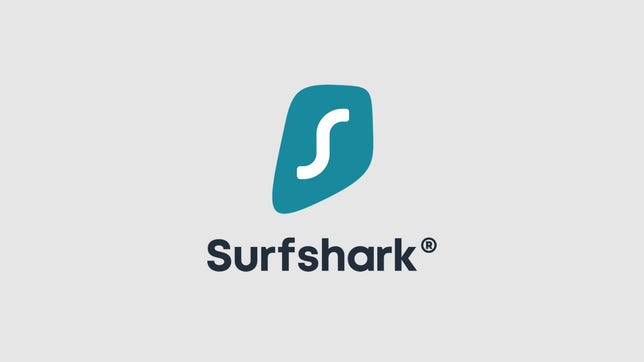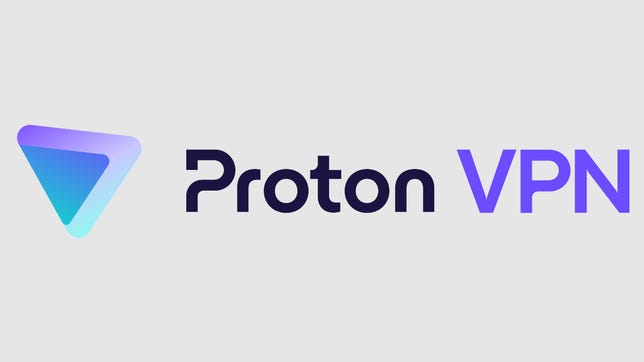Virtual Private Networks (VPNs) have become increasingly popular in recent years, as more and more people look to protect their online privacy and security. With so many VPN services available, it can be difficult to know which one to choose. In this article, we'll take a look at some of the best VPN services for 2023, based on factors such as security, speed, and ease of use.

- Advanced security features such as double VPN, CyberSec and Automatic Kill Switch.
- Large server network with thousands of servers in 60 countries.
- User-friendly and easy to set up, compatible with multiple devices.
- Fast connection speeds, ideal for streaming and gaming.
- Flexible pricing plans with discounts for long-term commitment
NordVPN is one of the most popular VPN services on the market, and for good reason. It offers a high level of security, with features such as double VPN encryption and a strict no-logs policy. Additionally, NordVPN has a large network of servers in various countries, which means you'll be able to find a fast and reliable connection no matter where you are.
Visit Website

- Advanced security features such as AES 256-bit encryption and Network Lock (kill switch)
- Large server network with 3000+ servers in over 90 countries
- High-speed connection and optimized for streaming and downloading
- Strict no-logs policy and offers split tunneling
- Available on various platforms and devices, including routers, gaming consoles, and smart TVs.
ExpressVPN is another great VPN service that offers a high level of security, with features such as 256-bit AES encryption and a no-logs policy. ExpressVPN also has a large network of servers in various countries, so you'll be able to find a fast and reliable connection no matter where you are. Additionally, ExpressVPN is known for its easy-to-use software, which makes it a great option for people who are new to VPNs.
- Advanced security features including AES 256-bit encryption and automatic kill switch
- Large server network with 6,700+ servers in over 90 countries
- User-friendly and easy to set up, compatible with multiple devices
- Strict no-logs policy and offers split tunneling
- 45-day money-back guarantee, providing added peace of mind
CyberGhost VPN is a newer VPN service, but it has quickly gained popularity due to its high level of security, fast speeds, and easy-to-use software. CyberGhost VPN offers a strict no-logs policy, 256-bit AES encryption, and a large network of servers in various countries. Additionally, CyberGhost VPN offers a 45-day money-back guarantee, which is longer than most VPN services.

- Advanced security features including AES 256-bit encryption and CleanWeb
- Large server network with 3200+ servers in 65 countries
- Unlimited simultaneous connections on one account
- Strict no-logs policy and offers Camouflage Mode
- Affordable pricing plans and a 30-day money-back guarantee
Surfshark is a budget-friendly VPN service that offers a high level of security, with features such as 256-bit AES encryption and a strict no-logs policy. Additionally, Surfshark has a large network of servers in various countries, which means you'll be able to find a fast and reliable connection no matter where you are. Plus, it allows an unlimited number of simultaneous connections, which is great for those with multiple devices.
- Advanced security features such as AES-256 encryption and automatic kill switch
- Large server network with over 25,000 servers in 75+ countries
- Strict no-logs policy and offers split tunneling
- Multiple VPN protocols including OpenVPN and WireGuard
- Affordable pricing plans with multiple options and a 30-day money-back guarantee.
PIA is another great VPN service that is known for its fast and reliable connections. This service offers more than 25,000 servers in 77 countries, providing a wide range of options for users. PIA also features a strict no-logs policy and strong encryption, making it a great option for those looking to protect their online activity.
- Advanced security features such as military-grade AES 256-bit encryption
- Large server network with 3200+ servers in 80+ countries
- User-friendly and easy to set up, compatible with multiple devices
- Fast connection speeds, ideal for streaming and gaming
- 45-day money-back guarantee and offers a free version with limited features.
Hotspot Shield is a popular VPN service that is known for its fast and reliable connections. This service offers more than 3,200 servers in 80+ countries, providing a wide range of options for users. Hotspot Shield also features a strict no-logs policy and strong encryption, making it a great option for those looking to protect their online activity.

- Advanced security features such as AES-256 encryption and Perfect Forward Secrecy
- Large server network with over 1000 servers in over 50 countries
- Strict no-logs policy and offers a built-in ad-blocker
- Free version available with limited features
- Secure Core feature which routes user's traffic through multiple servers for extra protection.
ProtonVPN is a Swiss-based VPN service that is known for its strong security features. This service offers servers in 54 countries, providing a wide range of options for users. ProtonVPN also features a strict no-logs policy and strong encryption, making it a great option for those looking to protect their online activity.
- Advanced security features such as AES-256 encryption and Automatic Kill Switch
- Large server network with 150+ servers in 60+ countries
- Strict no-logs policy and offers a free trial
- Fast connection speeds and support for P2P file sharing
- Affordable pricing plans with a 30-day money-back guarantee
PrivateVPN is another great VPN service that is known for its fast and reliable connections. This service offers servers in 60+ countries, providing a wide range of options for users. PrivateVPN also features a strict no-logs policy and strong encryption, making it a great option for those looking to protect their online activity.
- Advanced security features such as AES-256 encryption and Automatic Kill Switch
- Large server network with over 400 servers in over 60 countries
- Strict no-logs policy and offers a built-in ad and tracker blocker
- Free version available with limited features
- Multiple VPN protocols including OpenVPN and IKEv2 and a 45-day money-back guarantee.
Windscribe is a Canadian-based VPN service that is known for its strong security features. This service offers servers in 110+ countries, providing a wide range of options for users. Windscribe also features a strict no-logs policy, automatic kill switch, and a range of customizable settings to fit your needs. Additionally, Windscribe offers a free version of their VPN service with a limited number of servers, making it a great option for those on a budget.
- Advanced security features such as AES-256 encryption and Automatic Kill Switch
- Large server network with over 650 servers in 26 countries
- Strict no-logs policy and support for P2P file sharing
- Multiple VPN protocols including OpenVPN and IKEv2
- 30-day money-back guarantee and offers a free trial.
StrongVPN is a great VPN service that is known for its fast and reliable connections. This service offers servers in 26 countries, providing a wide range of options for users. StrongVPN also features a strict no-logs policy and strong encryption, making it a great option for those looking to protect their online activity. Additionally, StrongVPN offers a 30-day money-back guarantee, making it a risk-free option to try.
VPN FAQ
What is a VPN?
A virtual private network (VPN) is a type of technology that allows users to securely access a private network and share data remotely through public networks. By using a VPN, users can access the internet and their own networks from anywhere, as long as they have an internet connection.
VPNs work by creating a secure, encrypted tunnel between the user's device and the VPN server. This tunnel is established using protocols such as Internet Protocol Security (IPsec) and Secure Sockets Layer (SSL). Once the tunnel is established, all data that passes through it is encrypted, making it difficult for anyone to intercept and read the information.
VPNs are commonly used by businesses and organizations to securely connect remote employees to the company's internal network. This allows employees to access company resources, such as email and file servers, from anywhere. VPNs are also used by individuals to protect their personal information and online activities from being tracked or monitored.
There are different types of VPNs, including remote-access VPNs and site-to-site VPNs. Remote-access VPNs allow users to access a private network from a remote location, such as from home or while traveling. Site-to-site VPNs connect multiple sites, such as branch offices, to a company's main office.
VPNs can also be used to bypass government censorship and access blocked websites. This is particularly useful in countries where internet access is restricted or monitored. By connecting to a VPN server in a different country, users can access blocked websites and content.
In summary, a VPN is a technology that allows users to securely access a private network and share data remotely through public networks. It uses encryption to protect the data, and it's commonly used by businesses, organizations, and individuals to protect their online activities and personal information from being tracked or monitored.
When do I need a VPN?
A virtual private network (VPN) is a useful tool for protecting your online privacy and security. However, not everyone needs a VPN all the time. Understanding when a VPN is necessary can help you decide if it's right for you.
-
Public Wi-Fi: Public Wi-Fi networks, such as those found in coffee shops, airports, and hotels, can be convenient but they are also vulnerable to hacking and snooping. A VPN encrypts your internet connection, making it more difficult for hackers to steal your personal information.
-
Online Privacy: A VPN can help protect your online privacy by hiding your IP address and encrypting your internet connection. This makes it more difficult for advertisers, government agencies, and other organizations to track your online activities.
-
Online Streaming: A VPN can help you access geo-restricted content and streaming services. For example, if you're traveling outside of the U.S. and want to watch Netflix, you can use a VPN to connect to a server in the U.S. and access the content.
-
Bypassing Censorship: A VPN can help you bypass government censorship and access blocked websites. This is particularly useful in countries where internet access is restricted or monitored.
-
Businesses and Organizations: Businesses and organizations use VPNs to securely connect remote employees to the company's internal network. This allows employees to access company resources, such as email and file servers, from anywhere.
While a VPN can be a useful tool for protecting your online privacy and security, it's important to remember that it's not a cure-all. A VPN can't protect you from all types of cyber threats, such as phishing or malware. It's important to also practice good online security habits, such as using strong passwords and keeping your software up to date.
In conclusion, a VPN can be a useful tool for protecting your online privacy and security, but it's not necessary for everyone all the time. Consider using a VPN when you're connected to public Wi-Fi networks, concerned about your online privacy, trying to access geo-restricted content, bypassing censorship or working remotely. It's important to also practice good online security habits and use a reputable VPN service provider.
How do VPNs work?
VPNs, or virtual private networks, are tools that allow users to securely access the internet from anywhere in the world. They work by creating a secure and encrypted connection between the user's device and the VPN server. This connection, known as a "VPN tunnel," protects the user's online activity from being monitored or tracked by third parties.
When a user connects to a VPN server, the VPN client software on the user's device encrypts all of the user's internet traffic. This encrypted traffic is then sent through the VPN tunnel to the VPN server. At the VPN server, the traffic is decrypted and sent out to the internet. This process makes it much more difficult for third parties to intercept the user's internet traffic and access their personal information.
What can a VPN be used for?
VPNs, or virtual private networks, are versatile tools that can be used for a wide range of purposes. Some of the most common uses of VPNs include:
-
Online Privacy and Security: One of the primary uses of VPNs is to protect the user's online privacy and security. A VPN creates a secure and encrypted connection between the user's device and the VPN server, making it much more difficult for third parties to intercept the user's internet traffic and access their personal information. This can be especially important when using public Wi-Fi networks, which are often unsecured and can be easily accessed by hackers.
-
Bypassing Geo-Restrictions: Many websites and online services are only available in certain countries. By connecting to a VPN server in a country where the website or service is available, the user can access the website or service from anywhere in the world. This can be useful for accessing content that is otherwise blocked in the user's country, such as streaming services like Netflix or Hulu.
-
Online Gaming: VPNs can also be used to improve the user's online gaming experience. A VPN can help to reduce lag and improve connection speeds, making it easier to play online games with friends or compete in online tournaments.
-
Anonymous Browsing: VPNs can also be used to browse the internet anonymously. By connecting to a VPN server, the user's internet traffic appears to be coming from the VPN server, rather than from the user's device. This makes it much more difficult for third parties to track the user's online activity and access their personal information.
-
Business and Corporate Use: VPNs can also be used by businesses and corporations to secure their employees' internet connections while working remotely. This can be especially important for companies that handle sensitive information, such as financial or personal data. By using a VPN, employees can securely access company resources and communicate with each other while working from different locations.
-
Avoiding Censorship: In some countries, the government censors certain websites and online services. By using a VPN, users can connect to a server outside of their country and access the uncensored internet. This can be important for individuals living in countries with strict internet censorship laws, as it allows them to access information and communicate with the outside world.
-
P2P file sharing: Some VPNs allow peer-to-peer (P2P) file sharing, which is a method for sharing large files directly between users, bypassing the need for a central server. This can be useful for downloading large files such as movies, music, or software without worrying about copyright issues.
When is the best time to buy a VPN?
The best time to buy a VPN can vary depending on the individual's needs and budget. However, there are a few key times when purchasing a VPN may be especially beneficial:
-
Before traveling: If you plan to travel internationally, purchasing a VPN before your trip can be a wise move. By connecting to a VPN server in your destination country, you can access the internet as if you were there and bypass any geo-restrictions or censorship.
-
During a sale: Many VPN providers offer sales or discounts at various times throughout the year. These can be a great opportunity to save money on a VPN subscription. Keep an eye out for promotions, special deals or Black Friday sales to take advantage of these discounts.
-
When privacy concerns are heightened: If there is an event or news story that raises concerns about online privacy and security, it may be a good time to consider purchasing a VPN. These events could be anything from a data breach to a change in privacy laws.
-
When starting a new job: If your new job requires you to work remotely or handle sensitive information, it's a good idea to purchase a VPN to protect your internet connection.
Are VPNs legal?
Virtual private networks (VPNs) are a popular tool for protecting online privacy and security. However, there is often confusion about whether or not VPNs are legal. The answer is that it depends on the country and the specific use of the VPN.
In general, VPNs are legal in most countries around the world. However, there are a few countries where the use of VPNs is heavily restricted or outright banned. These include China, Russia, and Turkey, among others. In these countries, using a VPN can result in fines or even imprisonment.
Even in countries where VPNs are legal, there are restrictions on their use. For example, using a VPN to access copyrighted content or engage in illegal activities is not allowed. Additionally, some countries have laws that require VPN providers to retain user data, which can be accessed by government agencies.
It's important to note that not all VPNs are created equal. Some VPNs are known to keep logs of user activity, which can be accessed by government agencies. It's important to choose a reputable VPN provider that has a clear privacy policy and does not keep logs of user activity.
For businesses and organizations, the use of VPNs may also be subject to specific regulations, such as compliance with data protection laws. Businesses should consult with legal and IT experts to ensure that their use of VPNs is compliant with any relevant regulations.
In conclusion, VPNs are generally legal in most countries, but the use of VPNs may be restricted or outright banned in some countries. Even in countries where VPNs are legal, there are restrictions on their use. Businesses and organizations should consult with legal and IT experts to ensure that their use of VPNs is compliant with any relevant regulations. It's also important to choose a reputable VPN provider that has a clear privacy policy and does not keep logs of user activity.
How are VPNs tested?
VPNs, or virtual private networks, are designed to provide a secure and private connection to the internet. To ensure that they are providing the level of security and privacy that they claim, VPNs must be thoroughly tested. There are several ways in which VPNs are tested, including:
-
Security Testing: One of the most important aspects of a VPN is its ability to provide a secure connection. This includes testing the VPN's encryption, authentication, and other security features to ensure that they are properly implemented and effective.
-
Performance Testing: Another important aspect of a VPN is its performance. This includes testing the VPN's connection speed, reliability, and stability to ensure that it provides a smooth and reliable experience for the user.
-
Privacy Testing: Privacy is another key aspect of a VPN. This includes testing the VPN's logging policies, to ensure that it is not keeping any records of the user's internet activity.
-
Leak Testing: VPNs can protect your privacy by encrypting your internet connection, but sometimes the VPN connection can "leak" and reveal your real IP address. VPNs are tested for IP, DNS, and WebRTC leaks to ensure that they keep your connection private.
-
User-Experience Testing: User experience is also important, this includes testing the VPN's ease of use, compatibility with different devices, and quality of customer support.
-
Jurisdiction testing: VPNs are tested for their jurisdiction, meaning where the company is based and what laws apply to them, this is important as some countries have strict internet censorship laws.
Conclusion
In conclusion, choosing the best VPN service for your needs can be difficult, with many options available. However, the above VPN services are some of the best VPN services for 2023, based on their features, security, and reliability. It is important to do your research and choose a VPN service that best fits your needs and budget. Whether you're looking for a budget-friendly option or a service with a wide range of servers, there is a VPN service on this list that will meet your needs.